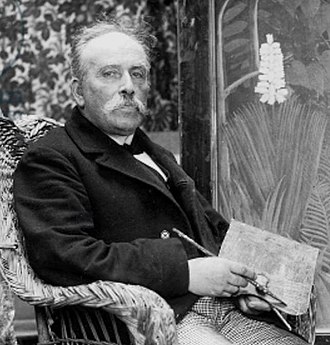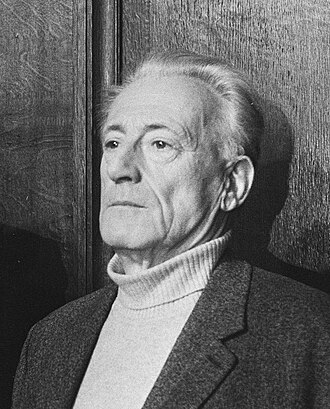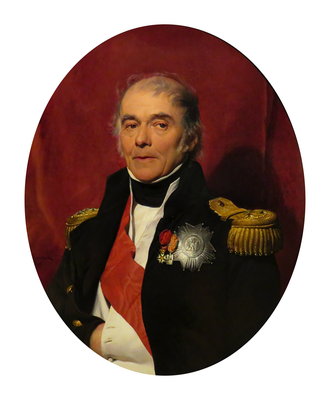Discover Your Roots
SIGN UPDiscover Your Roots
SIGN UPHenri is a male given name of French origin, derived from the name Henry. The name means "Ruler of the Home" and is associated with strength, leadership, and authority within the domestic sphere. It has a rich historical significance, with notable bearers including French nobles, intellectuals, artists, athletes, and fictional characters. Henri is a popular name in French-speaking regions and is also found in Estonian, Finnish, German, and Luxembourgish cultures. The name carries a sense of responsibility and influence, reflecting the traditional role of a leader and protector within the family unit. Its timeless and noble connotations make it a dignified choice for parents seeking a name with historical significance and a strong, enduring meaning for their son.

Henri Julien Félix Rousseau, known as Le Douanier, was a French post-impressionist painter who gained recognition for his Naïve or Primitive style. Born in 1844, Rousseau initially worked as a toll and tax collector but pursued painting seriously in his forties. Despite facing ridicule from critics during his lifetime, he eventually became acknowledged as a self-taught genius whose art had a significant impact on avant-garde artists. Rousseau's notable works include "Tiger in a Tropical Storm (Surprised!)" and "The Sleeping Gypsy." His unique vision of jungles and wildlife, as depicted in "The Hungry Lion Throws Itself on the Antelope," influenced the avant-garde movement, possibly even inspiring the term "Fauves." Notably, in 1908, Pablo Picasso organized a banquet in Rousseau's honor, which became a pivotal event within the art world. Rousseau's retirement in 1893 allowed him to focus on his art, and he continued to create remarkable pieces until his passing in 1910. Despite facing hardships and working various jobs to support himself, Rousseau's legacy as a visionary artist endures to this day.

Henri Lefebvre (1901-1991) was a renowned French Marxist philosopher and sociologist, celebrated for his extensive body of work that delved into the critique of everyday life, the right to the city, the production of social space, and dialectical materialism. With over sixty books and three hundred articles to his name, Lefebvre left an indelible mark on intellectual and academic circles, founding and contributing to various influential journals. He began his academic journey with a philosophy degree from the University of Paris and later joined the French Communist Party before becoming an important figure in the French resistance during World War II. Lefebvre's critical stance on Stalinism, existentialism, and structuralism, as well as his groundbreaking concept of the right to the city, cemented his status as a leading intellectual. His book "The Production of Space" remains a highly cited work in urban theory. Lefebvre's impact extended beyond philosophy, influencing sociology, geography, political science, and literary criticism. His pioneering idea of the "critique of everyday life" continues to shape social thought, emphasizing the complex intersection of truth, power, and rhythm within the fabric of daily existence. Henri Lefebvre's legacy endures as a profound and multifaceted contribution to intellectual discourse.

Joseph Henri Richard, also known as "Pocket Rocket," was a Canadian professional ice hockey player who left an indelible mark on the sport. Born in Montreal in 1936, Richard followed in the footsteps of his older brother, Maurice "Rocket" Richard, and joined the Montreal Canadiens in 1955. Throughout his 20-year career, Richard made significant contributions to the team, earning the nickname "Pocket Rocket" due to his smaller stature and tactical playmaking style. His accomplishments include winning the Stanley Cup a record 11 times, a feat unmatched in NHL history. Richard's partnership with his brother on the ice proved fruitful, with their combined efforts leading to numerous victories for the Canadiens. Notably, Richard's pivotal role in the 1966 and 1971 Stanley Cup Finals solidified his status as a legendary player. His influence extended beyond the rink, as he fearlessly voiced his opinions, even in controversial moments, such as his public criticism of a former coach. In recognition of his outstanding career, Richard was honored as one of the '100 Greatest NHL Players' in history in 2017. His legacy continues to inspire hockey enthusiasts worldwide, cementing his place among the sport's most revered figures.

Henri Squire, born on 27 September 2000, is a talented German tennis player with a career-high ATP singles ranking of world No. 169 and a doubles ranking of No. 345. He gained recognition during his college tennis years at Wake Forest, where he was named the 2021 ACC Freshman of the Year and made it to the 2021 First-Team all ACC Singles. In 2022, Squire made his ATP Tour main draw debut at the Halle Open as a wildcard. He won his first ATP Challenger Tour doubles title in November 2022 at the Trofeo Faip–Perrel in Bergamo. In 2024, he achieved significant milestones, including winning his maiden ATP Challenger Tour singles title in Hamburg and making his Grand Slam debut at the French Open, resulting in his entry into the top 200 in the singles rankings. With a promising career trajectory, Squire continues to make waves in the tennis world.

Henri-Gatien Bertrand (French pronunciation: [ɑ̃ʁi ɡasjɛ̃ bɛʁtʁɑ̃]; 22 March 1773 – 31 January 1844) was a prominent French general renowned for his service during the French Revolutionary Wars and the Napoleonic Wars. Born in Châteauroux, Bertrand's military career began as a volunteer during the French Revolution. His close association with Napoleon Bonaparte began during the expedition to Egypt, where he served as Napoleon's colonel and later as his aide-de-camp. Bertrand's unwavering loyalty and significant contributions led to numerous accolades and titles, including being appointed as the third and final Grand Marshal of the palace. Notably, he married Fanny, the daughter of general Arthur Dillon, and played a pivotal role in various military campaigns, such as directing the construction of crucial bridges during the Wagram campaign. Bertrand's steadfast allegiance to Napoleon persisted through the exiles to Elba and Saint Helena, where he accompanied the emperor and remained until Napoleon's death. Bertrand's historical significance is underscored by his involvement in the retrieval and transport of Napoleon's remains from St. Helena to France in 1840. His life and legacy have been immortalized in literary works, including references in Alexandre Dumas' "The Count of Monte Cristo" and Victor Hugo's "Les Misérables." Ber
All images displayed on this page are sourced from Wikipedia or Wikimedia Commons.We use these images under their respective Creative Commons or public domain licenses. Wherever applicable, author attributions and license information are provided. If you believe an image is used incorrectly or outside its license terms, please contact us so that we can review and correct the issue.